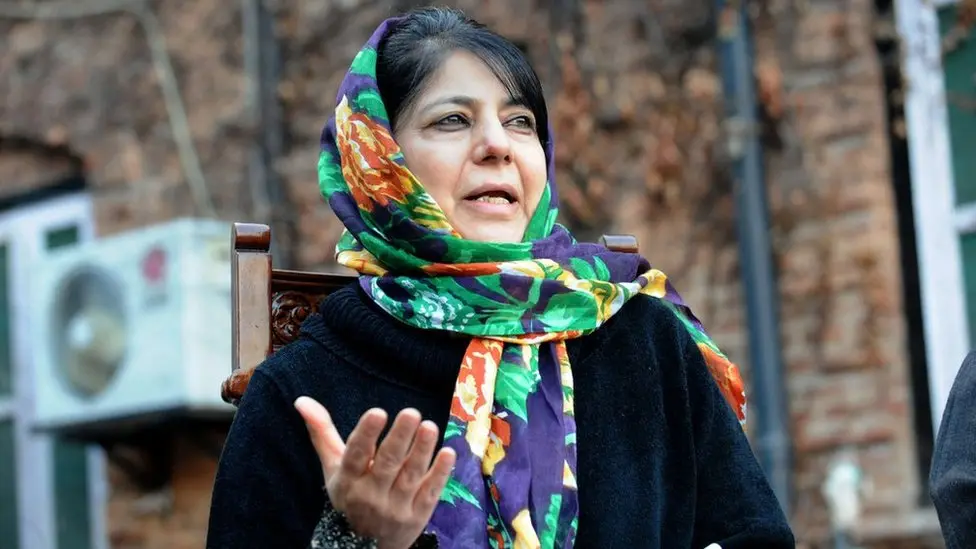
Mehbooba Mufti has proposed land allocation for Kashmiri Pandits to facilitate their dignified return
Former Jammu and Kashmir Chief Minister Mehbooba Mufti has called for a phased and inclusive roadmap to ensure the dignified return and rehabilitation of Kashmiri Pandits in the Valley. In a letter to Lieutenant Governor Manoj Sinha, Mufti emphasized the need for land allocation to displaced Pandit families, stating that their return must be secure, sustainable, and rooted in mutual trust. The proposal has reignited discussions on reconciliation, historical justice, and Kashmir’s pluralistic ethos.
Mehbooba Mufti’s Proposal: A Phased Approach
Mufti’s proposal outlines a multi-tiered strategy to facilitate the safe reintegration of Kashmiri Pandits. Key aspects of her plan include:
- Land Allocation – Each displaced Pandit family should receive half a kanal of state land in their district of origin, contingent upon their willingness to return.
- Security Mapping – A comprehensive zonal risk assessment to identify high, moderate, and low-risk areas, ensuring government postings align with individual safety preferences.
- Community Dialogue – A stakeholder-driven process involving civil society, local leaders, and administrative agencies to foster trust and inclusivity.
- Employment & Economic Support – Special provisions for government jobs, business incentives, and financial aid to help Pandits rebuild their lives.
Mufti has also urged the Union Home Minister Amit Shah and Chief Minister Omar Abdullah to support the initiative, emphasizing that the return of Pandits is not merely a demographic concern but a moral imperative.
Political and Public Reactions
The proposal has received mixed reactions from political circles and civil society:
- Supporters argue that Mufti’s plan is a step toward reconciliation, ensuring that Pandits return with dignity and security.
- Critics question the feasibility of land allocation, citing administrative challenges and security concerns.
- Kashmiri Pandit organizations have welcomed the initiative but insist that implementation must be backed by strong legal guarantees.
Meanwhile, Mufti has reiterated that every political party in J&K has historically supported the idea of Pandits’ return, urging collective efforts to make it a reality.
Challenges to Implementation
Despite the positive intent, several challenges remain:
- Security Concerns – Ensuring safe zones for returning Pandits amid lingering tensions.
- Infrastructure Development – Building housing, schools, and healthcare facilities to support reintegration.
- Legal Framework – Establishing clear property rights for allocated land.
- Community Acceptance – Addressing social and cultural integration to prevent alienation.
Experts suggest that a government-backed rehabilitation policy with financial incentives could accelerate the process.
Conclusion
Mehbooba Mufti’s land allocation proposal for Kashmiri Pandits marks a significant step toward their dignified return. While challenges remain, the initiative has reignited hope for reconciliation and historical justice in the Valley. As discussions progress, the success of this plan will depend on political will, administrative efficiency, and community cooperation.
Also read – India’s Boycott Costs Turkey Over $315 Million: A Trade Fallout Analysis